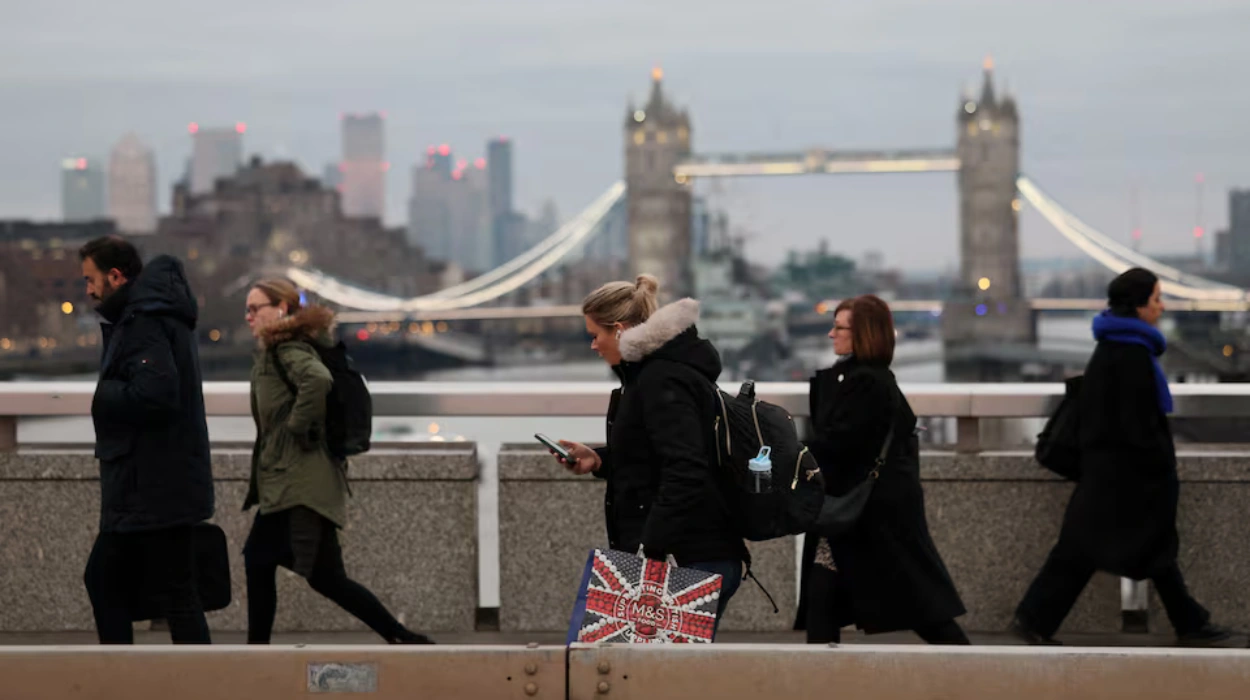UK (Parliament Politics Magazine) – Labour announces plans to cut £5bn from welfare by 2029/30 to control spending, but critics warn it could harm disabled and low-income individuals.
British government has outlined a £5bn welfare reduction plan, citing fiscal concerns, but the move has sparked concerns among lawmakers.
How will Labour’s £5bn welfare cuts impact the economy?
The upcoming March 26 fiscal statement will test pre-election promises to limit tax increases and balance public finances. The government faces mounting pressure amid slower-than-expected growth, declining tax revenues, and global economic uncertainty.
Ministers are taking all possible measures to boost growth while keeping spending under control. Their goal is to meet their fiscal target of aligning daily public finances with tax revenues by 2030.
The growing welfare budget, which funds support for disabled individuals and those with long-term health conditions, has now exceeded Britain’s defense spending.
The UK’s welfare spending was set to exceed £100 billion ($129 billion) by 2030. This increase was fueled by a rising number of working-age individuals unable to work due to health problems, one of the highest rates in Europe.
Institute for Fiscal Studies report about health-related benefits in the UK
A report from the IFS revealed a 38% increase in health-related benefit recipients among working-age individuals in England and Wales over four years. The number reached 3.9 million people, accounting for 10% of the workforce. In contrast, the numbers remained unchanged or declined in Australia, Canada, France, Germany, and the United States.
Liz Kendall’s views about welfare cuts and PIP changes
Liz Kendall, work and pensions minister said in a statement to parliament, “This is a significant reform package that is expected to save over 5 billion pounds in 2029/30 and the OBR (Office for Budget Responsibility) will set out their final assessment of the costings next week.”
She outlined a £5bn savings plan by 2030, focusing mainly on Personal Independence Payments. The government intends to tighten eligibility criteria, limiting access for new applicants.
How did charities and Labour MPs react to the welfare changes?
The move to maintain PIP levels and remove routine assessments received some support. Meanwhile, charities, trade unions, and left-wing Labour MPs condemned the wider welfare cuts as “immoral.”
Charles Gillies from the MS Society stated,
“These immoral and devastating benefits cuts will push more disabled people into poverty, and worsen people’s health.”
Fran Heathcote, PCS union general secretary said,
“Targeting the most vulnerable with benefit cuts to meet arbitrary fiscal rules is an immoral choice at any time, but at a time of rising poverty, long NHS waiting lists and when the cost-of-living crisis continues to bite is abhorrent.”
Dr Sarah Hughes, CEO of Mind, said,
“Mental health problems are not a choice – but it is a political choice to make it harder for people to access the support they need to live with dignity and independence. These reforms will only serve to deepen the nation’s mental health crisis.”
National Education Union (NEU) general secretary Daniel Kebede stated,
“It is hard to conceive of a Labour government treating the most vulnerable members of society any worse. For pensioners who have lost the winter fuel allowance, parents coping with the two-child benefit, and now the targeting of disabled adults, cruelty is becoming a hallmark of this government. It is simply indefensible.
The Scottish TUC said,
“These welfare reforms from the Labour UK Government could well have been delivered wearing a [Tory] blue rosette. It’s a short-sighted, reactionary decision that does nothing more than risk throwing people into avoidable destitution.”
Debbie Abrahams, Labour MP for Oldham East and Saddleworth, warned the government regarding, “balancing the books on the backs of sick and disabled people”.
Research fellow at the Institute of Economic Affairs Professor Len Shackleton stated,
“This announcement will upset disability campaigners and Labour’s back-benchers, but will do nothing much to reform benefits or save significant amounts of money.”
He added,
“Eligibility for PIP certainly needs to be narrowed, but it remains to be seen just how this will be accomplished. It certainly makes sense to have a common fitness to work test for PIP and universal credit, but this test needs to be much tougher – and assessed in person – than either of the existing measures.”
What did Keir Starmer say in response to criticism about welfare cuts?
Labour leader responded to the backlash over welfare cuts and posted on X,
“This government will always protect the most severely disabled people to live with dignity. But we’re not prepared to stand back and do nothing while millions of people — especially young people — who have potential to work and live independent lives, instead become trapped out of work and abandoned by the system. It would be morally bankrupt to let their life chances waste away.”
We inherited a fundamentally broken welfare system from the previous government.
— Keir Starmer (@Keir_Starmer) March 18, 2025
It does not work for the people it is supposed to support, businesses who need workers or taxpayers who foot the bill.
This government will always protect the most severely disabled people to live…
What did the Conservatives say about Labour’s welfare reforms?
The Tory party slammed the government’s welfare reform, dismissing them as “too little, too late.”
Shadow work and pensions secretary Helen Whately told the House of Commons,
“This is a now or never chance to seize the moment, a now or never for millions of people who will otherwise be signed off for what could end up being a lifetime on benefits, but this announcement today leaves me with more questions than answers.”


